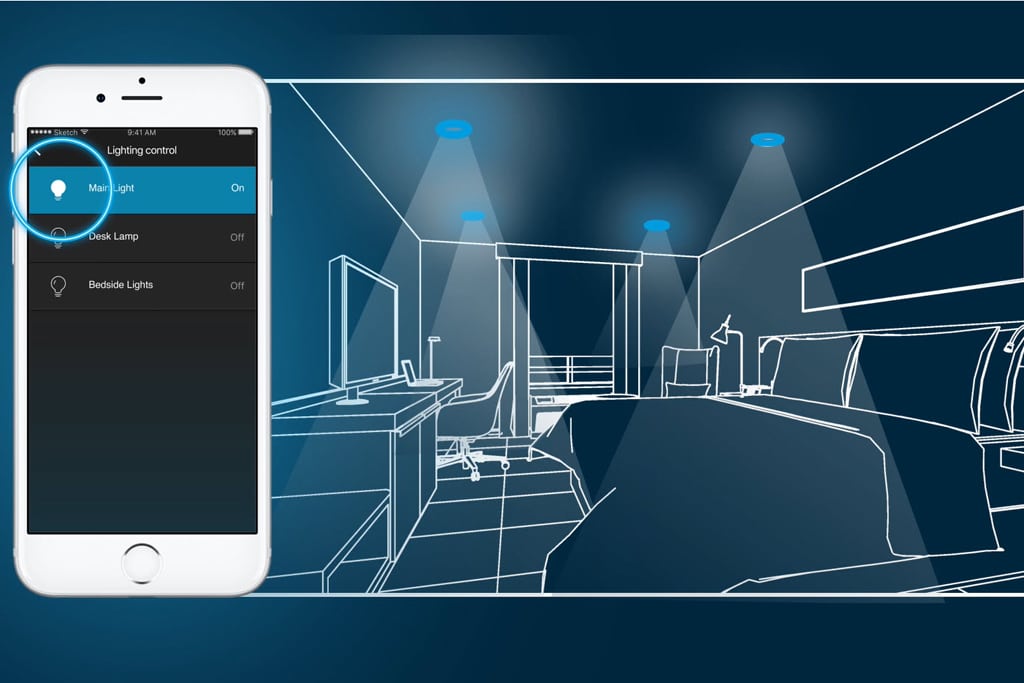Skift Take
Airbnb has gained in popularity on the claim that chain hotels offer a cookie-cutter experience. Hilton can fight back with technology that enables guests to personalize their experience.
Hilton Worldwide is betting that guests will want to control their room’s thermostat, television, and other amenities via their mobile phones.
The goal is to enable Hilton guests to use its mobile app to set their room preferences, which hotels can automatically apply to individual rooms when guests check in.
“A guest will be able to save preferences in the app, such as by favoriting a TV channel or setting a thermostat, and their selections will be applied when they check in,” said Joshua Sloser, senior vice president of digital.
“If you like your room cold and to have ESPN on the TV, the room can start cooling once you check in,” he said. “And when you use the phone or room remote to turn on the TV, your favorite ESPN and other channels would be on the screen by default.”
“The end goal is that the experience will travel with the guest consistently and seamlessly as they visit various brands in various countries.”
Hilton chose Memphis, Tennessee, for its first test hotel. The company plans to get “a handful of more properties” live there and in Dallas in “the coming weeks.” During the tests, guests use remote controls that simulate the app to operate basic amenities in rooms, said Sloser.
The move, dubbed “the Connected Room,” was first announced by Christopher Nassetta, president and CEO, on-stage at the Skift Global Forum in September.
On Thursday Hilton released a video explaining its connected room concept.
Staged Rollout
The chain plans to add hotels to the test in the coming weeks and will “begin to scale rapidly to hotels across the U.S. in 2018.”
Here’s the backstory: Between 2014 and 2016, Hilton updated its mobile app for members of its loyalty program to enable guests to use their mobile phones to choose their rooms and unlock the doors.
Rollouts take time. While Hilton debuted its app-based digital key in summer 2014, only about 3,000 out of its 5,100 properties worldwide have been enabled to handle the digital key functionality as of November 2017.
The goal now is to add the ability to the app for guests to adjust the lighting, open and close window coverings, and make other room changes via the same app.
Manual controls will remain for guests preferring not to fumble with their phones.
The company is chosing not to incorporate voice-activation in its product in these initial stages, as Skift reported last month.
Enabling control of thermostat requires coordination with the company’s rollout over several years of new temperature control systems that can enable remote control by the front desk or a mobile app.
Updates to the Honors App will take place sometime next year. The connected room functionality will only appear in the app if it’s relevant to the property a guest is staying at.
While Hilton has repeatedly said that its smart room technology is proprietary and that it has been designed and built in-house from the ground up, the company has leveraged some technology from third-party vendors to bring the system to life, Sloser acknowledged.
Another hotel, The Peninsula in Hong Kong, was among other companies that pioneered some of the individual technologies of controlling room amenities via mobile devices.
“What we’re the first in the industry to do is enable connected guest rooms with an integration at scale in a consistent experience,” said Sloser. “No other chain has done that.”
Have a confidential tip for Skift? Get in touch
Tags: hilton, Internet of Things
Photo credit: Guests who stay at test properties will be able to use the Hilton Honors app to manage most of the things they could traditionally do manually in a room. These actions range from controlling the temperature and lighting to the TV, and window coverings. Hilton
